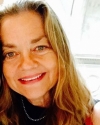- Autumn 2018
Syllabus Description:
Instructor: Frances McCue frances@francesmccue.com
Days/Time: MW 2:30 - 4:20 CMU 243
Mondays 12:30-2 Padelford B434
THE TRIGGERING TOWN: The Poetics of Place in a Globalized World
When poet Richard Hugo created the idea of “the triggering town” in the 1970s, he was touring small towns in the Pacific Northwest and in Scotland. The visits acted as “triggers” for beautiful poems centered in these places. In his collection of essays about teaching and writing, Hugo described “The Triggering Town” as an imaginary method to help poets begin new poems. The verse-maker would imagine a town-- one created with real memories of actual towns he/she had been visited or knew as a hometown, and then furnish the place with made-up oddities. Then, in that inquiry, the poet would stumble upon a compelling subject, one humming below the surface of the “triggering town.” By following the music of the language, the poet would find the real subject of the emerging draft, and follow it into a new, and surprising, poem. Place, according to Hugo’s model, was integral to the development of the poems.
This course, too, is an inquiry into the tensions, inspirations and resolutions between poetry and place. How do poems that resonate in particular places read in an era of globalization? How do gestures of nostalgia and authenticity impact poems that address the subject of place? How does the infrastructure of globalization and gentrification appear in contemporary poetry? What of the neoliberal impact of forced agency-- how do the speakers of poems address an increasingly plastic world?
Our work will be to study poems published between 1963 and the present and set in this region of north Cascadia. Students will work on group projects to apply theoretical lenses to poets whom they choose to study; they will also write three short "inquiry" papers.
Expectations for Students
You must attend all classes and come with all of the assigned readings completed. We’ll expect you to be curious about how others view “knowing” and how you can open up your own perspectives to accommodate others' expanding notions of knowledge. You should critically consider your belief systems along with the belief systems of others, but should do so in a respectful and humble manner and be willing to experiment in your writing and be an active, questioning learner.
Group Work
Much of class time will be spent in small group work. For each session, we may assign group roles of reporter, recorder, timekeeper/taskmaster, encourager, and supplies/techmaster/cleanup. These roles should change for each session so everyone has assumed all the roles, several times.
Reporter: reports key points into the larger group.
Recorder: Takes notes and summarizes key points.
Timekeeper and taskmaster: Keeps the timeline on track and the duties transparent and accountable.
Encourager: Facilitates and encourages everyone to speak and encourages some to speak less frequently.
Supplies/ Tech/ Cleanup: Assures a tidy workspace, meets tech and supplies needs.
Suggestions
A big part of this class is about being a good group member-- by being a leader and by making your group a better learning community. Use this opportunity to practice these skills:
Try to be an active, deep listener.
Be curious about what others think about a topic.
Support each other emotionally and academically—have each other’s back.
Have out of class meetings either face to face or electronically.
Mind the edges. Work toward each member being part of the group. Think about forming affection bonds—making friends. Peer-edit each other’s writing.
The specifics:
The Group Project (50 points): At the end of the term, on the last day of class, you will turn in a link to a group project that you have created with a team from our class. This project will be a collaborative effort that contributes to the scholarly, artistic and historical material about poets of this region. You will find a place to publicly showcase your work and post it.
The project may be a film, podcast, long paper, blog, series of short essays/reviews or another product that is publicly accessible.
It must be the work equivalent of 10 pages of polished writing per person. You will show evidence of this, attached to your project, at the end of the term. The project must include:
- a focus on the work of 3 - 4 poets who are living and working in Cascadia today;
- a theoretical lens that provides a focus on the work of these poets;
- selections of place-based or place-referenced work by these poets and close readings of these;
- brief biographical sketches of these poets;
- a clear statement about whether the material is a) an inquiry; b) a thesis-driven argument; c) a description of a phenomenon that you have identified.
Research inquiries (30 points):
Throughout the term, you will embark on small research inquiries that will result in three-page (750-900 word) papers. These three inquiries will help you shape your group project. Papers will demand that you form an inquiry question and research some possible answers to it. For example: "Who are the poets writing about Seattle and gentrification and what forms are they using?" or "Are there poets writing from rural parts of this region who connect to ideas of nature and ecopoetics in their work?" or "How do neoliberal ideas play out in the work of particular poets?"
Grading will be assessed on the quality of the question and answer; clean copy (error-free) presentation and proper length and on-time delivery.
Participation (20 points): The course depends upon you to be a good listener, an encouraging and reliable collaborator and a contributor to discussions.
